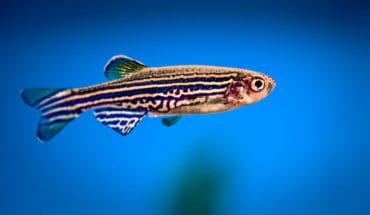Parents were once encouraged by health experts to avoid giving their weaned babies certain ‘high risk’ foods to reduce the risk of their offspring developing potentially life-threatening food allergies. Many parents in the US in the 1980s and 1990s, advised by the American Academy of Paediatrics avoided giving babies cow’s milk for a year after birth, eggs until a child turned two. Peanuts were not suitable until a child turned three. In the UK, the Department of Health also advised delayed introduction of these suspect foods.
The rise in the number of people with food allergies accompanied by an increased number of children hospitalised for anaphylaxis was a powerful incentive for parents to abide by the guidelines, which were quietly dropped when it became clear that the picture was not so straightforward.
In fact, a succession of studies have shown that limiting these foods does not reduce the risk that a child will develop food allergies. A clearer picture has been emerging and research has been suggesting the opposite is true. A study that I have been involved with at Imperial College London has found that giving babies egg and peanut may actually reduce their risk of developing an allergy to these foods.
In the research, commissioned by the UK Food Standards Agency, our team of scientists analysed data from 146 studies. In total the studies involved more than 200,000 children.
The results suggest introducing egg into the diet of an infant from age four to six months may reduce their risk of developing egg allergy. The reductions in risk were quite considerable. Introducing eggs into an infant’s diet from a young age may reduce the risk of developing an egg allergy by approximately 40 per cent. Risk of peanut allergy may be reduced by around 70 per cent in infants who have peanut butter introduced into their diet early (never whole nuts which can be a choking hazard). However, it is important to bear in mind that most children will not develop food allergies, whether they introduce egg and peanut early or not. Allergies to foods, such as nuts, egg, milk or wheat, affect around one in 20 children in the UK. They are caused by the immune system malfunctioning and over-reacting to these harmless foods. This triggers symptoms such as rashes, swelling, vomiting and wheezing. This means that for every 1000 mums who decide to introduce egg and peanut into their infant’s diet earlier because of our findings, 24 cases of egg allergy will be prevented and 50 peanut allergies. These numbers are estimates based on currently available data and may change when further studies have been completed.
We found that the effect of early allergenic food introduction was very specific, and you can’t expose children to just one food allergen to get blanket protection from all food allergies. Giving a child peanut butter may reduce the likelihood of him or her being allergic to peanuts, but not to eggs. Parents would have to expose their children to a wide range of potential allergens after weaning to minimise the risk for all possible foods.
Babies who have already developed signs of allergic disease such as eczema before weaning onto solid food should not be exposed to potentially allergenic foods without having an allergy test first, since this could cause an immediate serious reaction.
- Eggs after weaning - 27th September 2016






